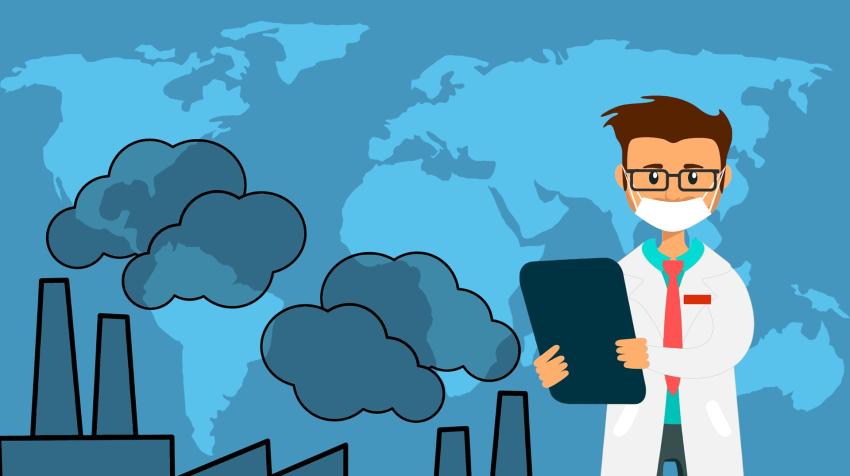Climate change is the long-term alteration in average weather patterns and is linked to the release of greenhouse gasses, such as carbon dioxide and methane, into the atmosphere. These gasses trap heat from the sun, leading to long-term global temperature increases. This global climate change has an array of effects on human health, ranging from direct to indirect impacts.
Climate change, directly and indirectly, affects the health of people worldwide. Warmer temperatures and changes in precipitation levels can increase the spread of vector-borne diseases, lead to poor air quality, reduce access to clean drinking water, change the availability of food sources and create more extreme weather conditions. These environmental changes can cause serious health issues such as:
- Respiratory issues: Higher levels of air pollution, caused by increased temperatures and more frequent wildfires, can cause a range of respiratory illnesses including asthma, COPD, and lung cancer.
- Vector-borne diseases: Warming temperatures and changes in rainfall increase the prevalence of vector-borne diseases such as malaria, dengue fever, and Lyme disease.
- Diarrheal diseases: Changes in temperature and precipitation can lead to an increase in waterborne and food-borne illnesses, such as diarrhoea, cholera, and salmonella.
- Heat-related illness: Prolonged exposure to high temperatures can lead to heat exhaustion, heat stroke, and other heat-related illnesses.
- Mental health issues: Climate change can lead to stress, anxiety, and depression due to extreme weather events, the loss of loved ones or homes, or the fear of future impacts.
Be aware of the potential health risks associated with climate change. Taking steps to reduce your carbon footprint and limit the effects of climate change is an important way to protect yourself, your family, and the planet.
Learning more about how climate change impacts the health and well-being of individuals and communities can help you make more informed decisions as a global citizen. Through education, advocacy, and collaboration we can make our world a healthier place for generations to come.
How to Avoid Climate Change-Related Health Risks
There are several things you can do to reduce your risk of climate change-related health problems.
- Reduce your carbon footprint: You can reduce your emissions by taking public transportation or riding a bike instead of driving, using energy-efficient appliances and light bulbs, and choosing renewable energy sources.
- Stay informed: Keep up with the latest news and information on climate change so you can be prepared for any potential health risks.
- Advocate: Participate in local and global initiatives to reduce your carbon footprint and protect the environment.
- Practice safe behaviours: Follow public health guidelines, such as wearing sunscreen, covering your mouth and nose when around others, and staying hydrated, to protect yourself from any potential health risks.
Being aware of how climate change impacts the health and well-being of individuals and communities is the first step to protecting yourself and your family.
By taking the time to understand the risks associated with climate change and making changes in our lives to reduce our carbon footprints, we can help make a difference in the fight against climate change and protect the health of future generations.
image source: Mohamed Hassan/Pixabay

